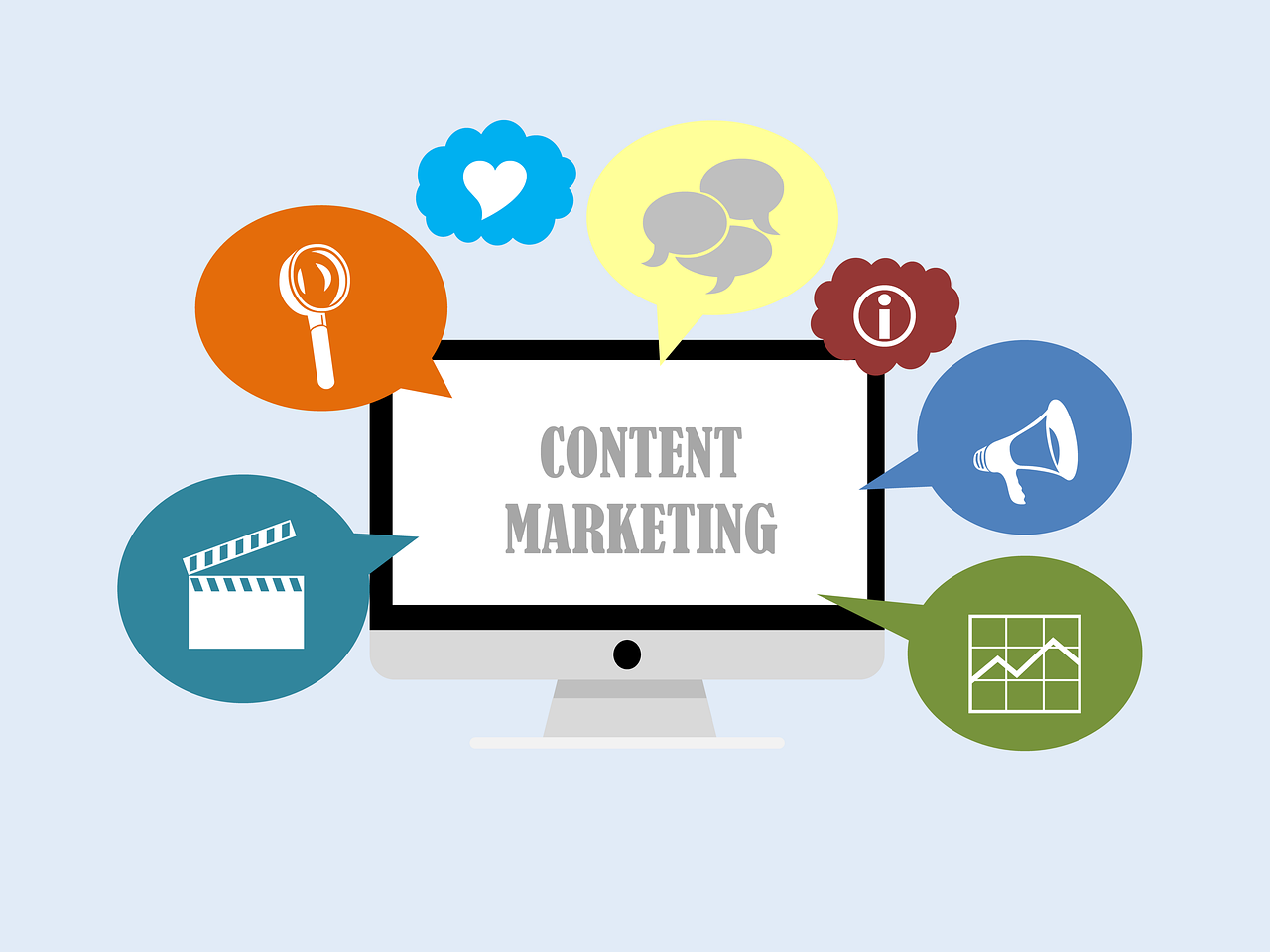Sign up for our daily digital marketing news brief today, free.
The Content Marketing Institute describes content marketing as a “strategic marketing approach focused on creating and distributing valuable, relevant, and consistent content to attract and retain a clearly defined audience — and, ultimately, to drive profitable consumer action.”
Traditional, hit-the-pavement, marketing isn’t going to work these days and word-of-mouth marketing takes too long. For the best results, in a reasonable timeframe, digital marketing with great content is the most effective way for a company to meet its business goals. All audiences love well-crafted content and will work with a business that develops and promotes it.
The benefits of content marketing are boundless, as content can be used in a variety of different ways on many different platforms. Why should businesses be using content marketing in their marketing strategy?
- Content is best promoted on social, where there are just over 3 billion social media users.
- 86% of B2C marketers have proven content marketing is a key strategy.
- Year-over-year growth in unique site traffic is 7.8x higher for content marketing leaders over their competition.
- Content marketing is an opportunity to showcase a business’ talent and its team’s skill set.
Content pulls the audience in and encourages them to reach out to a company for more information on their product or service. An online user goes through all the stages of the customer funnel before making a purchasing decision. Content marketing allows a business to reach a user during any stage of the buying process.
2021 is the Year of Connection
A lot changed for us in 2020. We crave virtual connection, as that is often all the connection we can achieve while practicing safe distancing. To achieve that, online users are looking for content featuring real people to educate and interact with us.
One of the ways businesses can educate and interact is through webcasting or livestreaming via social media. This is as simple as using a phone or laptop and logging into Facebook, Instagram or YouTube Live to broadcast a webinar, Q&A session, product giveaway or other business announcement. All webinars can also be edited and uploaded to YouTube for video marketing content. Like webcasting, video marketing has seen a rise (by fourfold) in the last year. Watching videos helps users feel connected to the performer or content creator. By allowing the audience to get to know a team, it allows a company to increase their business leads.
The audience will become more interactive
A recent trend among websites now is audience interaction. Interactive websites allow visitors to change the screen with a click of a button. Refreshed content on a site that users can interact with will be vital for user experienced and increased web traffic. For a successful website with increased on-site conversions, businesses must adapt to the changing needs of the consumer or user. If the audience wants to interact, build a website that allows them to do just that. Examples include quizzes, forms, animated pictures and videos, personalized product suggestions or chat boxes and customized product specs.
Content encourages users to make quicker decisions
Depending on a business’ sales cycle, the sales team might not want to wait months to complete a conversion. To encourage a quicker decision from the consumer, content is key. Well-developed content establishes trust among the audience and builds a positive brand reputation. For example, case studies showcasing previous successes with customers or clients and testimonials boasting about a company and its service(s) drive quicker decisions in the customer journey. If a user understands that the business is a leading provider and often drives success, they will likely mull over their choice in less time, trusting they’re making the right decision.
Generates leads and increases conversions
Another reason content is essential: Proven results.
- 61% of US online consumers made a purchase after reading a recommendations on a blog
- 72% of businesses say video has improved their conversion rate
Basically, content generates leads and increases on-site conversions. Content, such as blogs or videos, can be tracked and the results and ROI are visibly proven backed by data.
Improves organic search ranking
Creating content and adding it to the website improves search ranking in organic search results, leading to more web traffic.
How? Consistent updates to a website and social media platforms with content improves page position in organic search, putting a site further up in search results. Moreover, content allows for more opportunity to rank for more keywords, which also improves position in search ranking. The more relevant keywords used on a webpage, the more users will go to that page and stay on the website. When Google or other search engines identify that, the search engine will feed the website more frequently to common search users, understanding that the particular webpage is valuable.
In conclusion, to improve ranking and increase conversions, it’s a best practice to give the audience what they want and pummel the competition that won’t put as much thought or action into building out content. Keep in mind, to understand how well a content strategy is performing, regular tracking and reporting is required. By tracking web traffic increases or decreases, popular web pages and scroll or click activity, the business can understand what users want more of and what they ignore on the site. This data can help refine a content strategy for better performance.
A robust and successful content marketing strategy uses organic search, digital advertising and social media to amplify quality content. Regardless of who creates your content, the benefits are consistent: increased brand awareness, deeper audience engagement, increased conversions on-site and higher brand loyalty from your constituents.
Meg Riley is an account executive at Anvil Media, who specializes in content marketing and digital strategy.
